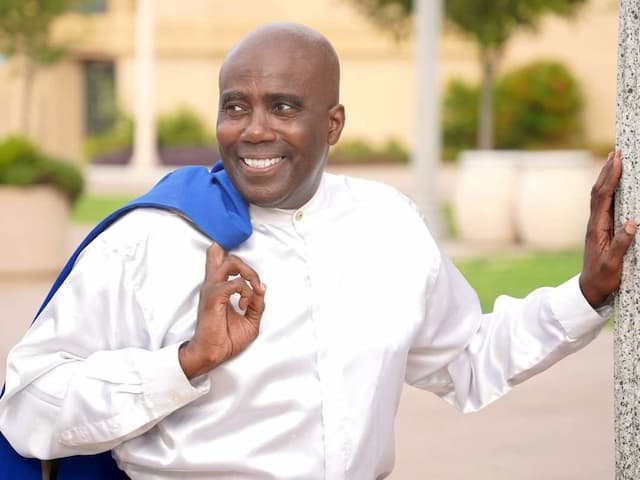A Lesson for Parents From the Life of Esau - Booty and Treasures fer All!
 A lesson for parents from the life of Esau: “The views and opinions expressed by this lubber do not necessarily reflect the views or positions of the crew. Reader discretion be advised.” – Staff
A lesson for parents from the life of Esau: “The views and opinions expressed by this lubber do not necessarily reflect the views or positions of the crew. Reader discretion be advised.” – Staff
Esau despised his birthright. (Genesis 25:34)
A Lesson for Parents From the Life of Esau
Perhaps Esau didn’t know of the promises God made to his grandfather. Perhaps he knew and didn’t care. Perhaps he cared but not enough to respect his grandfather’s wishes. Or perhaps Esau simply did not wish to be associated with God.
As parents we can learn much from the life of Esau and how, when we make idols out of our kids, they break from us, break our hearts, and break fellowship with God.
Parents Can Seed Their Values
After the death of his wife Sarah, Abraham asked his servant to:
“Swear by the Lord, the God of heaven and the God of earth, that you will not get a wife for my son from the daughters of the Canaanites, among whom I am living.” (Genesis 24:3)
The term Canaanites serves as an ethnic catch-all term covering all the indigenous people living in the land God would give to Abraham and his descendants. The Canaanites created a culture of wicked living and promoted sexual immorality. The Canaanites created a culture of death, demanding human sacrifice to their gods—specifically, the sacrifice of children.
This is what the Lord says: “They have built the high places of Baal to burn their children in the fire as offerings to Baal—something I did not command or mention, nor did it enter my mind.” (Jeremiah 19:5)
God had another culture in mind: one that was holy and reflected his character. Abraham placed his faith in the one true God. The Canaanites lived under God’s curse and believed in many gods.
When Noah found out what his youngest son had done to him, he said, “Cursed be Canaan! The lowest of slaves will he be to his brothers.” (Genesis 9:24-25)
Because Abraham feared Isaac might become corrupted by the cultural practices of those around him, he ordered his servant to get a wife for his son from Abraham’s family. For Abraham, the values of God mattered a great deal.
Parents Cannot Seed Their Faith
But by the time Abraham’s two grandsons were born, those values no longer carried the same importance. Both Isaac and Rebekah had begun to assimilate into the culture. We know this because when a famine swept through the land Isaac went to the king of the Philistines in Gerar. The Lord told Isaac to remain in the land, that he would be blessed. And God did bless Isaac. So much so that the Philistine king asked that a treaty be made between Isaac and his neighbors.
“There ought to be a sworn agreement between us—between us and you. Let us make a treaty with you that you will do us no harm. harm, just as we did not harm you but always treated you well and sent you away peacefully. And now you are blessed by the Lord.” (Genesis 26:28-29)
And yet even with all God’s blessings awaiting him Esau came to reject God and the legacy of his grandfather and father. The result of Esau’s casual relationship with God was to lose the birthright.
Esau swore an oath to him, selling his birthright to Jacob. (Genesis 25:33)
Do the Math
Within two generations a family branch can lose contact with Jesus, the vine. Soon after rejecting God and his blessings, Esau lay with the two Hittite women, Judith and Basemath.
When Esau was forty years old, he married Judith daughter of Beeri the Hittite, and also Basemath daughter of Elon the Hittite. They were a source of grief to Isaac and Rebekah. (Genesis 26:34-35)
The End of Esau
The end of Esau’s drift from God reaches its climax when he realized how displeasing the Canaanite women were to his father, Isaac, and married Ishmael’s daughter, Mahalath. (Genesis 28:8-9) By sleeping with Canaanite women, not only did Esau defy his grandfather’s wishes, but he also broke faith with his grandmother, Sarah—a woman who had once demanded that Ishmael be sent away.
Esau’s descendants became the Edomites, a people who lived on Mount Seir in what is now the country of Jordan. Though his blood brother—his twin in fact—the Edomites often attacked Israel (Jacob), but Jacob’s offspring were forbidden to hate Eau’s descendants. (Deuteronomy 23:7)
The end of Esau is that of a lost soul.
See that no one is sexually immoral, or is godless like Esau, who for a single meal sold his inheritance rights as the oldest son. Afterward, when he wanted to inherit this blessing, he was rejected. Even though he sought the blessing with tears, he could not change what he had done. (Hebrews 12:15-17)
A Prayer for Parents From the Life of Esau
Let us pray that during this age of grace God will have mercy on our children—even those who have rejected him and this inheritance of faith we wish to seed into them.
Lord, you reveal yourself to those who did not ask for you. You are found by those who do not seek you. To those who do not call on your name, you say, “Here am I, here am I.” All day long you hold out your hands to obstinate people, to those who walk in evil ways, pursuing their own imaginations — a people who continually provoke you to your very face. (Isaiah 65:1-3) And yet we also know that those who rebel against you do at times turn to you, repent, and pray that you will forgive them of their sins and will heal them. (2 Chronicles 7:14) Lord, we ask that you continue to reveal yourself to _____________. Though _____________ does not seek you, may you be found by _____________. Though _____________ is attacked and deceived by evil spirits, may you hear our prayer and heal my child. We ask this in the powerful name of Jesus, the one who heals all, casts out all unclean spirits, saves all. Amen.







